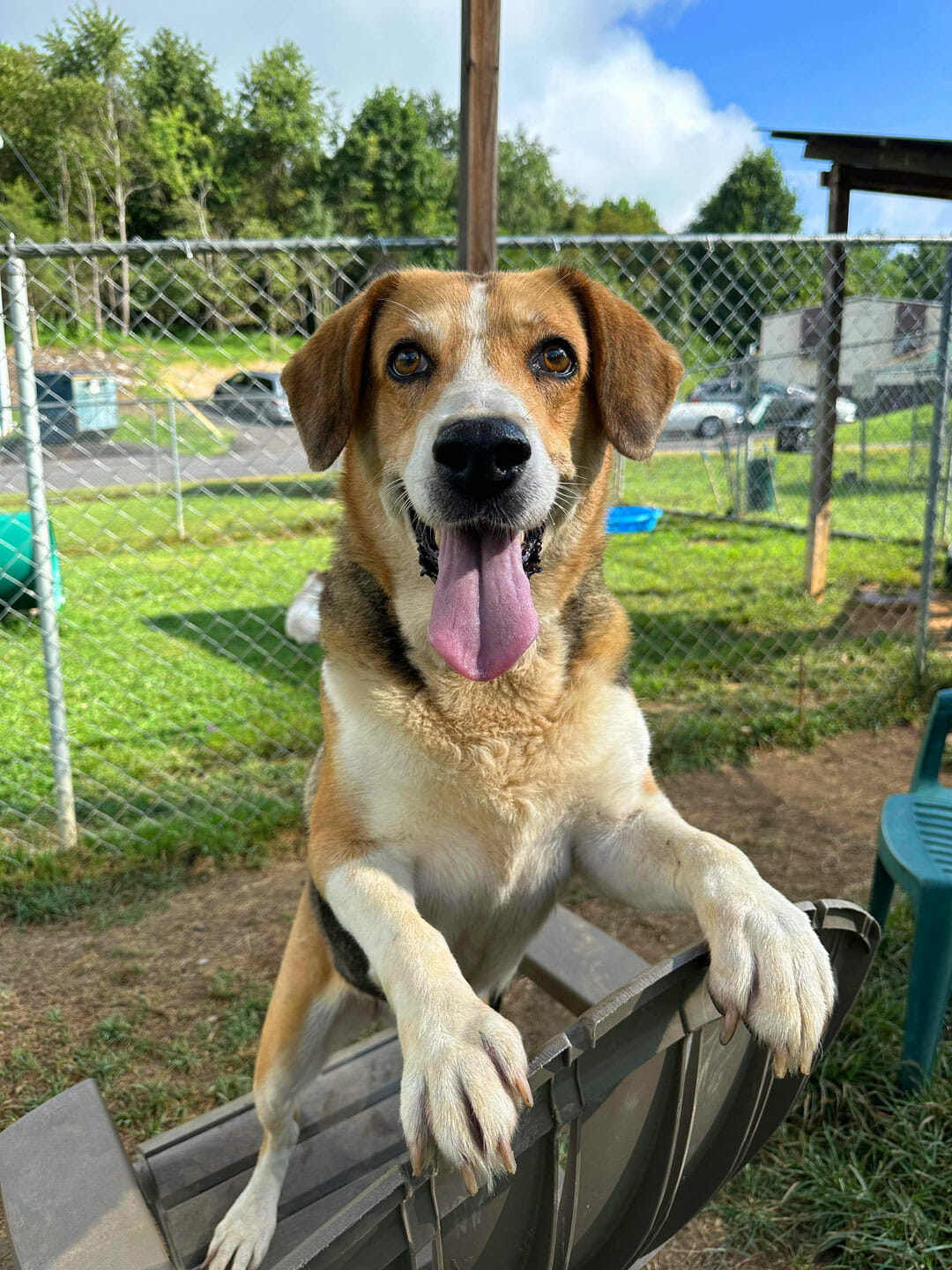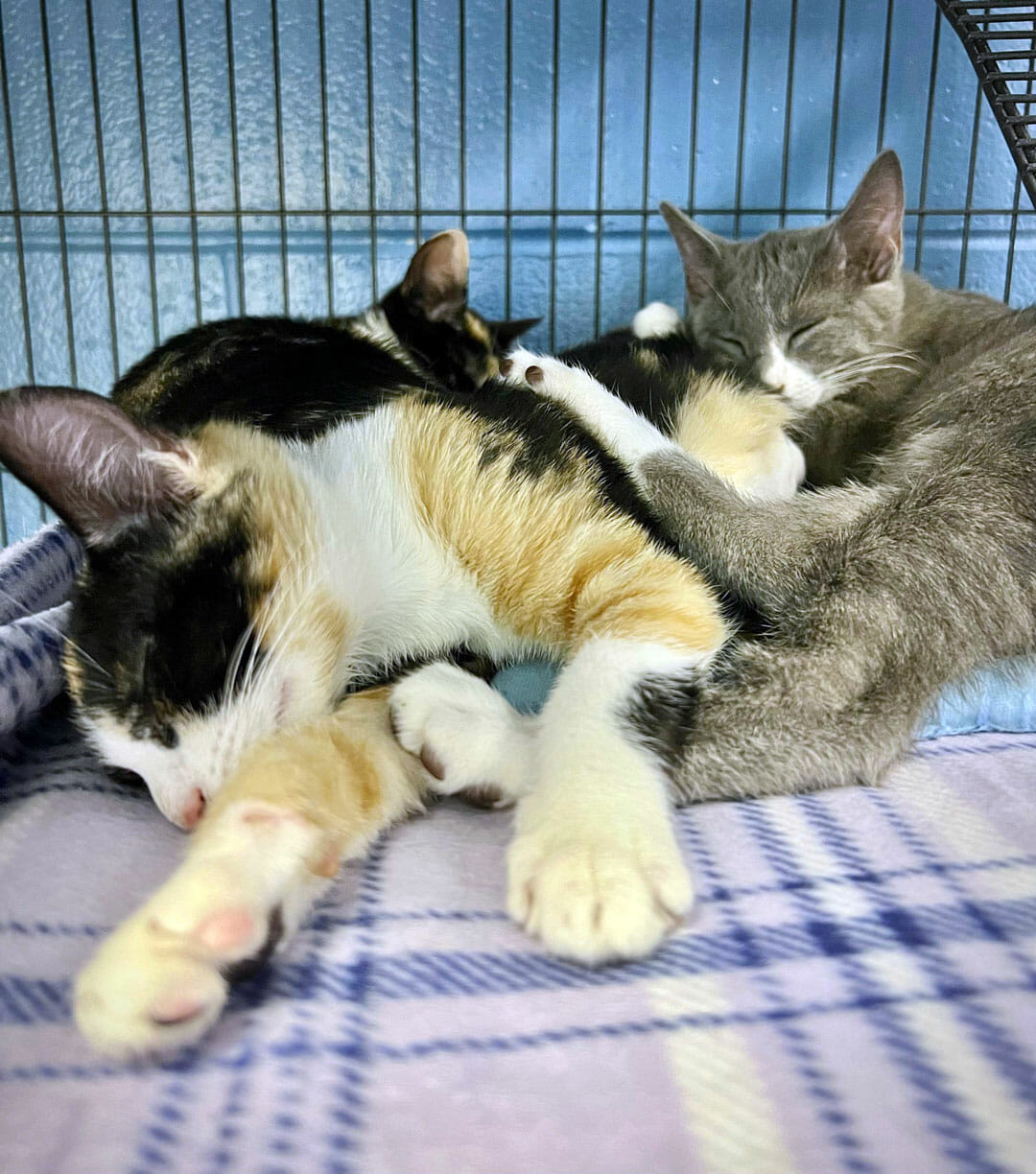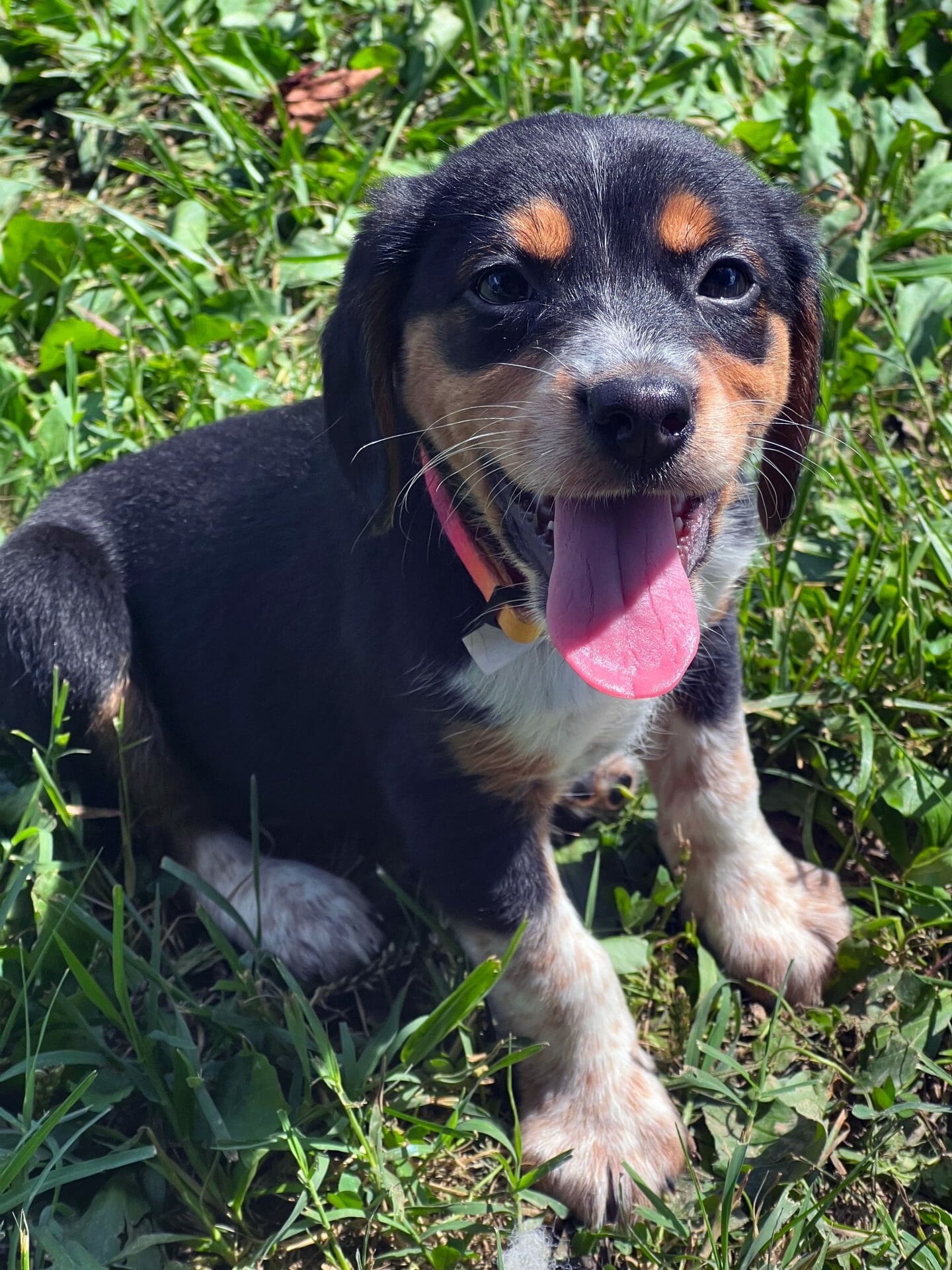Spay/Neuter

Expert Spay/Neuter Solutions
The Animal Shelter of Sullivan County is the first shelter in the Tri-Cities of Northeast Tennessee and Southwest Virginia with a state approved spay/neuter surgical suite. The shelter has a 3-bed surgical area with adjoining prep rooms, state of the art IDEXX lab station and recovery area.
The opening of this surgical suite enables us to work with our community to help to spay/neuter their animals and the community cats that live outside in the county.
All spay/neuter surgeries are by appointment only.
Registration Information
- Any animal over the age of 3 months must show proof of rabies vaccination or a 1-year rabies vaccination will be administered to the animal during the spay/neuter surgery.
- We have additional vaccinations, services and testing available for an additional fee.
- Spay/neuter appointments are booked on a first come, first served basis and are available to be booked up to 1 month in advance.
- Full payment for services rendered is due at the time of booking. If you need assistance, please contact the shelter at (423) 279-2741, option 5 OR Via email clinicasosc@gmail.com
- If you are flagged as a “No Show” your payment will be forfeited.
- The Animal Shelter of Sullivan County clinic asks that you line up for check in, keeping dogs six feet apart. All cats are to be in carriers, all dogs must be on leashes.
- If the cat is a feral or “community cat” it must be in a trap. The shelter rents traps out if needed. If the cats come and not in a trap, there will be an additional $30 charge. This is for the safety of the staff and veterinarian. Label all traps and carriers with your name/animal’s name and line the carriers/traps with a disposable pad, newspaper, towel, etc. Limit to one animal per carrier.
- All animals will receive a small tattoo indicating their spayed/neutered status.
We are open to residents in all surrounding counties, you do not have to reside in Sullivan County to register for our spay/neuter services with exception of community cat program as that is specific to Sullivan County.
Arrival Time: 7AM
Pick up time: Dogs 4PM and Cats 4:30PM
Surgical Requirements:
- Minimum age 12 weeks of age and minimum weight of 3 pounds.
- Proof of rabies vaccination is required – animals without proof of rabies vaccination will be given the vaccine (rabies vaccines are included in the price of the spay/neuter.
- For our mature patients, at the discretion of the veterinarian, bloodwork will be completed prior to anesthesia or surgery. This testing will check liver and kidney function along with protein levels, blood sugar, and red and white blood cell counts. Occasionally we may have to postpone surgery until a medical condition is resolved.
- All animals must have food withheld after midnight the night prior to surgery. Your pet may have water.
- Before you arrive, make sure you have signed the electronic consent for surgery form and have made your payment
We will not perform surgery on:
1. Brachycephalic animals – bulldogs, frenchies, pugs or other “short-nosed” animals
2. Sphynx cats
Spay/Neuter Surgery Pricing as of September 2024
DOGS
ALL Dogs – $80 (pregnancy is an additional $15)
Hernia Repair – $15 (if hernia is noted during spay/neuter surgery)
Due to the raising cost for large breed dogs there will be a up charge of $20 if your dog weighs over 70lbs.
CATS
Female Cat Spay– $75(pregnancy is an additional $15)
Male Cat Neuter– $60
Hernia Repair – $15 (if hernia is noted during spay/neuter surgery)
Community Cats- $20 ( if not in a trap, additional $30 charge) (pregnancy is an additional $15)
Spayed Pets Don’t Go Into Heat
If they aren’t spayed, cats will go into heat at around six months of age. They will stay in heat for an average of six days. The cycle of heat repeats every three weeks on average during their season. When they are in heat, cats become very vocal and demanding. They may bleed and even spray urine.
Dogs generally only go into heat twice a year. They also bleed and urinate excessively during their cycle. Spaying prevents your pet from going into heat and exhibiting these behaviors.

Spaying Your Female Pet Will Help Her Live Longer
Spaying your kitten when she is 3-6 months old will virtually eliminate the risk that she will develop mammary cancer when she’s older. Additionally, spaying your kitten prevents many different infections and cancers that occur in the uterus and ovaries.
A study of 460,000 cats and 2.2 million dogs found that spayed cats live 39% longer and spayed dogs live 23% longer than their unspayed counterparts. Like cats, spayed dogs are less likely to develop certain cancers, as well as pyometra, a potentially fatal uterine infection.
Pyometra: A serious condition where the uterus fills with pus. Pyometra can affect many organs, which can make a pet very sick or even kill her. One of the organs that classically gets damaged is the kidney. It can get worse: a “mature” pyometra can rupture or break. This leads to having pus all over the belly (septic peritonitis).
Breast Tumors: More than 25% of non-spayed female dogs will develop breast or mammary tumors. Spaying pets protects against them, depending on the timing. The risk of a dog having mammary tumors is 0.05%, if a female is spayed before the first heat. Then it increases to an 8% risk after their first cycle, and 26% after their second heat. If a dog is spayed after two years of age, then there is no more protection.
Your Neutered Male Pet Will Be Healthier

Neutered dogs don’t develop testicular cancer, which is common in older dogs who haven’t been neutered. They also have a lower risk of pancreatic cancer, and their life expectancy is increased up to 18%.
Neutering your cat will also eliminate the possibility of testicular cancer and decrease the possibility of pancreatic cancer.
